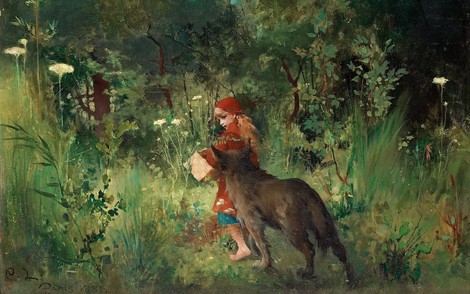Your podcast discovery platform
Curious minds select the most fascinating podcasts from around the world. Discover hand-piqd audio recommendations on your favorite topics.

piqer for: Deep Dives Global finds Globalization and politics Health and Sanity
Daria Sukharchuk is a journalist based in Berlin, where she works as a news anchor for Russian-language OstWest.tv. Her writing has appeared in Motherboard and ZEIT Online, Cosmopolitan, as well as Afisha (Moscow's leading city magazine). She specializes on the topic of human rights, migration, and mental health.
She has her BA in Chinese history, and, never having forgotten her history background, has also contributed to the educational project1917.com.
Why Is The Pop Culture Obsessed With The Battle Of Good Vs Evil?
The battle of Good vs Evil is central to most of the epic stories of the last century. It is not hard to draw the boundary between good guys and bad guys in Harry Potter, Lord of the Rings, Star Wars, Avengers, and countless other pop-culture epics. But it wasn't always like that: in the legends and folktales these stories often originate from, the hero and the villain were not so starkly different as Luke Skywalker and Darth Vader.
The original Thor and Loki, for instance, did not fight for different values, but for power, and simply had different personalities. The heroes of the Iliad, despite fighting on different sides of a war, were not so different. The prize at stake was Helen of Troy, rather than the existence of the world. And it is equally easy to sympathize with Hektor as it is for Achilles, as the creators of the original text clearly do.
When did our culture change so dramatically? Catherine Nichols argues that the process began in the 18th Century when the Enlightened European writers, such as the Grimm Brothers (and countless other folklorists), began collecting folktales to capture their nations' spirit and elevate it, mixing in a hefty dose of their time's moral, which was not there in the first place. She goes even further, saying that:Good guy/bad guy narratives might not possess any moral sophistication, but they do promote social stability, and they’re useful for getting people to sign up for armies and fight in wars with other nations.
Reducing an entire genre of culture to a mere propaganda tool might be rather radical, but it is an interesting angle to look at the pop culture from. Especially when it comes to a frightening conclusion that:
When we tell stories of good guys warring bad guys [...] we are rehearsing the idea that moral qualities belong to categories of people rather than individuals.And that, essentially, justifies locking those categories of people up.
